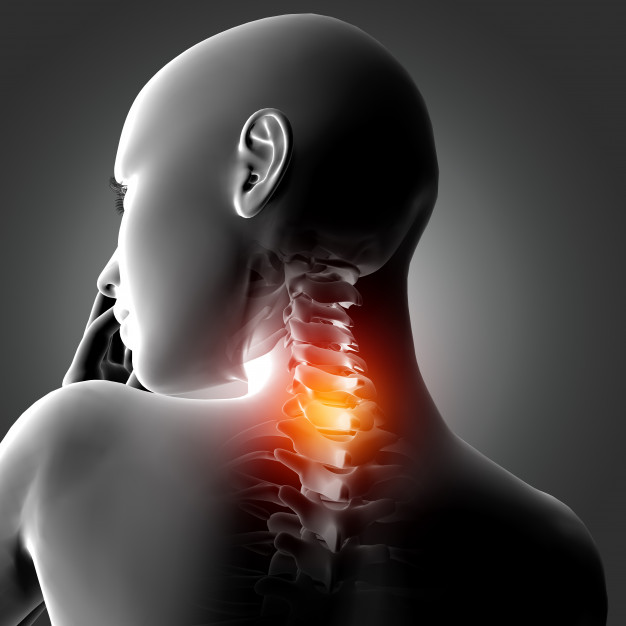
About 15% of Americans experience neck pain on a regular basis, making it the fourth most common source of pain, behind headaches, knee pain and back pain.
Most cases of neck pain are minor and associated with sporting injuries, muscle strains or poor posture. However, neck pain can also be a warning sign of a severe underlying condition.
Around 10% of all incidents of neck pain are caused by serious underlying illnesses like arthritis, cancer, infection and other illnesses. For this reason, incidents of neck pain shouldn’t be discounted as being a normal part of life.
Here are some common causes of neck pain and several warning signs which indicate that you may have a more serious condition that requires medical attention.
Common Causes Of Neck Pain
Neck pain is a prevalent condition in the United States because there are so many illnesses and injuries which can cause it to occur. The most common causes include:
- Injuries
Neck injuries are often sustained at work, on the sporting field, or as a result of an accident (car crash or falls being the most common accidents). Repetitive stress injuries can also occur, often due to poor posture or poor workplace ergonomics. Injuries can affect any of the components within the neck, including its muscles, ligaments, bones, and nerves. - Muscle strains
Spending hours with the neck in an awkward position or overdoing it at the gym are common causes of neck muscle strain. Even looking down at a mobile phone for too long with your neck in an awkward position can cause muscle strain. - Nerve compression
Conditions like bone spurs and herniated discs can pinch the nerves coming from the spinal cord. The type of pain caused by nerve compression is typically sharp and severe. It often causes referred pain, with pain also being experienced in the arms, shoulders or hands. - Worn joints in the spine
The body’s joints eventually wear down over the years. As the bones in the vertebrae wear down, mobility levels in the neck can be affected and pain may occur. - Diseases
There are several diseases that can cause neck pain including cancer, osteoporosis, lymphadenopathy, thyroiditis, and rheumatoid arthritis.
When Should You Be Concerned With Neck Pain?
If any of the following scenarios apply, seek out medical attention. Be aware that these scenarios do not mean you are guaranteed to have a serious illness, they simply indicate that you should get a checkup.
You Have Severe Pain and It’s Not Improving
If the pain you are experiencing is severe and debilitating, medical assistance should be sought. Severe pain may be an indication of a significant injury or illness that requires medical intervention. Quickly escalating pain levels also cause for concern.
Your Neck Pain Persists Over Several Weeks
In most cases, a sore neck caused by a minor injury should resolve itself within a few days. If you continue to experience pain for several weeks, see a doctor.
You Can’t Think Of A Reason For Your Neck Pain
As mentioned earlier, most cases of neck pain are caused by sporting injuries, muscle strains, and poor posture. If you recently played contact sports, spent a lot of time sitting down, or had a very heavy workload, some minor neck pain may be nothing to be concerned about. However, if you cannot think of any reason for your neck pain occurring, consider talking to a doctor.
The Pain Begins To Spread Down To Your Arms Or Legs
Pain that shoots along your limbs is often related to nerve compression. If this type of pain occurs, ask a doctor to assess the health of your spine to identify the root cause of your pain.
The Pain Is Accompanied By Other “Red Flag” Symptoms
The symptoms listed below, when combined with neck pain, can indicate that a serious illness may be involved. If you have these symptoms, talk to a doctor.
Fevers and chills
- May indicate a bacterial or viral infection.
- Throbbing or constrictive neck pain
Can relate to several serious issues including blood clots and torn blood vessels. - Pain along the spine
If light tapping on the spine triggers pain, it may be a sign of bone disease, cancer or other spinal conditions. - Unexpected weight loss
When combined with neck pain, this symptom can be a sign of serious conditions like lymphocytic lymphoma or bone cancer. - Headache combined with fever, inability to bend, altered mental state
This combination of symptoms can indicate meningitis. - Dizziness, nausea and/or vomiting
These symptoms may indicate instability in the upper cervical spine, which is placing pressure on the spinal cord. - Pain in other joints, rashes, irritated eyes, and poor digestion
These symptoms can indicate an autoimmune disorder
Remember that these scenarios are signs that you should see a doctor. If you are experiencing a lot of pain or other worrying symptoms, seek out medical attention.












